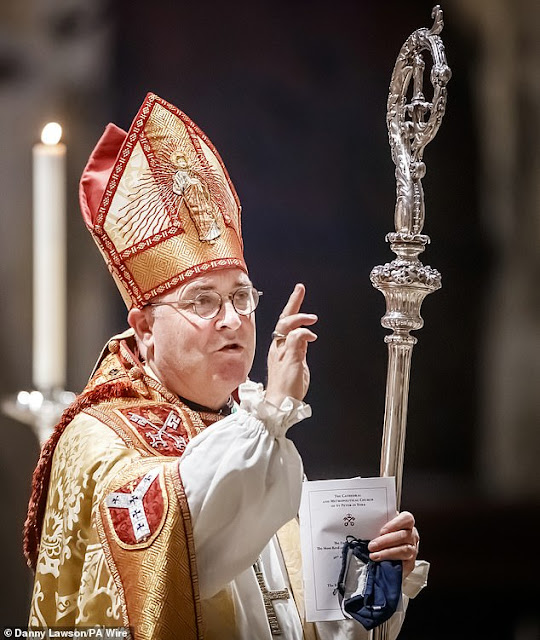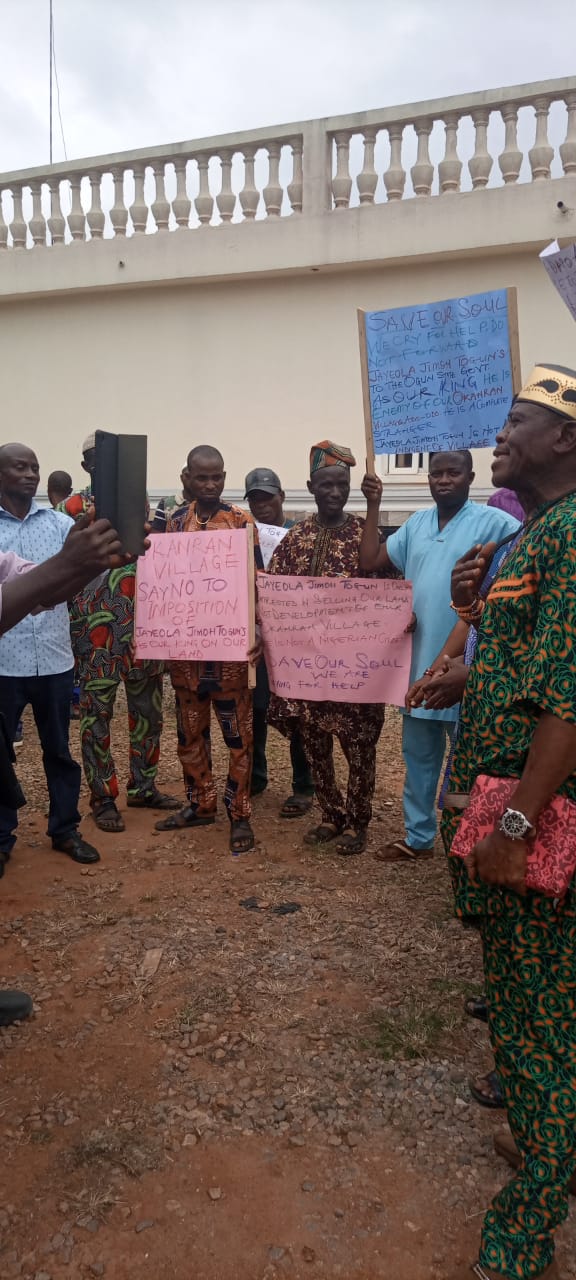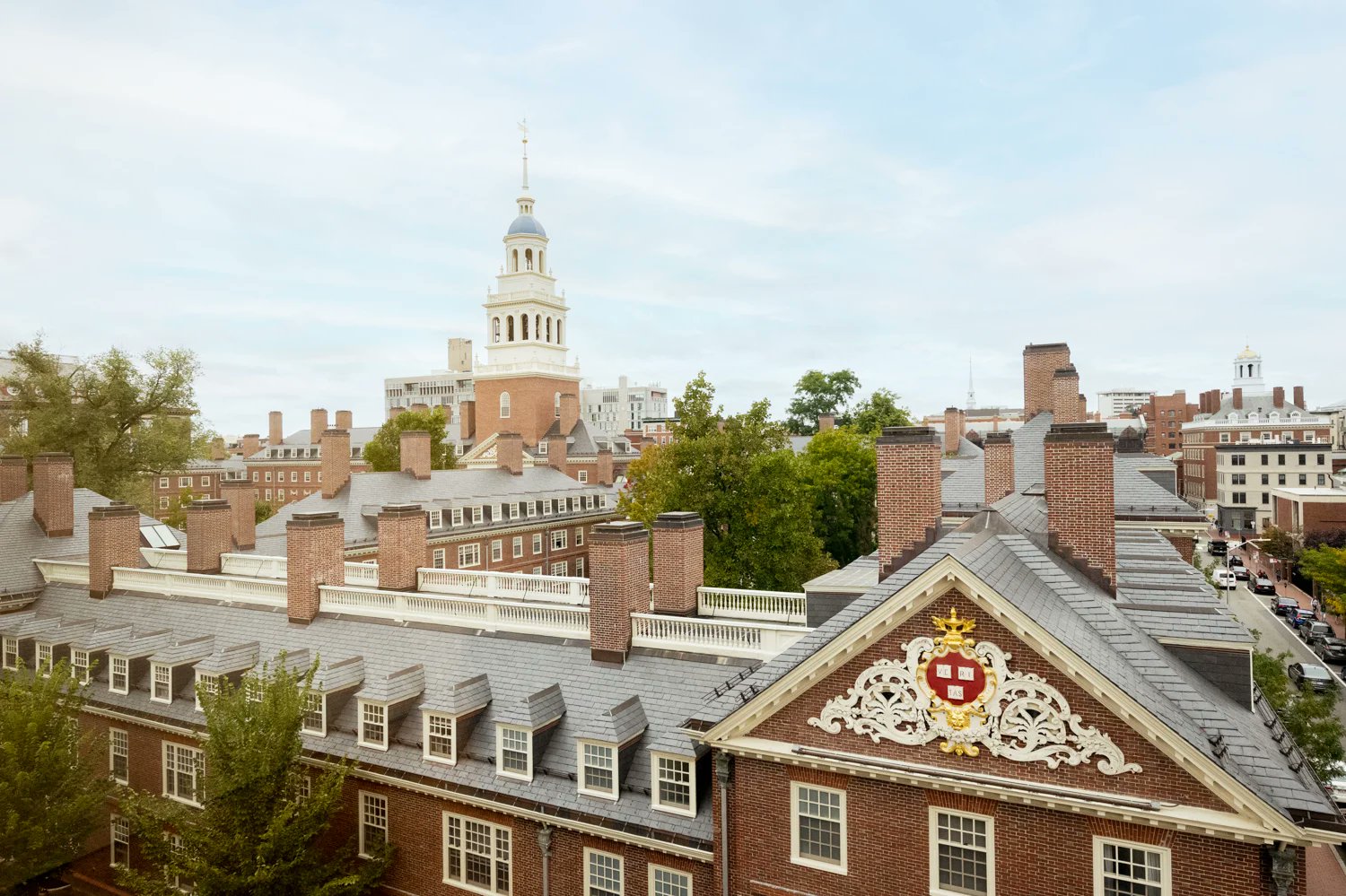In a powerful and emotive intervention, the Archbishop of York, Stephen Cottrell, has called on the British government to adopt a stance of “compassion and understanding” toward illegal migrants, sharply criticizing proposals for mass deportations. His remarks come in response to Reform UK leader Nigel Farage’s pledge to deport 600,000 asylum seekers within five years if his party wins the next general election. The Archbishop’s plea, grounded in Christian values and Britain’s historical tradition of offering refuge, has reignited a heated debate over immigration policy, particularly as protests erupt outside hotels housing asylum seekers and the Labour government grapples with the growing number of migrants crossing the English Channel. This article explores the context, implications, and broader significance of Cottrell’s intervention, delving into the complexities of the UK’s immigration challenges and the moral questions at the heart of the debate.
The Context: A Nation Divided on Immigration
The United Kingdom is at a crossroads on the issue of immigration, with public opinion sharply divided over how to address the influx of migrants, particularly those arriving via illegal routes such as small boats crossing the English Channel. In recent years, the number of migrants making the perilous journey from northern France to the UK has surged, fueled by conflicts, persecution, and economic hardship in countries across Africa, the Middle East, and beyond. The sight of overcrowded boats landing on British shores has become a lightning rod for controversy, with some viewing the arrivals as a humanitarian crisis demanding empathy, while others see them as a strain on public resources and a challenge to national sovereignty.
The Labour government, now in power, faces mounting pressure to address the issue of illegal migration, particularly as taxpayers fund accommodation for asylum seekers in hotels and other facilities across the country. Widespread protests outside these locations have underscored the growing tensions in communities, with some residents expressing frustration over the perceived burden on local services. Against this backdrop, Reform UK leader Nigel Farage has seized the opportunity to push a hardline stance, promising sweeping deportations and significant changes to the UK’s legal framework if his party gains power.
Nigel Farage’s Deportation Pledge
On Tuesday, Nigel Farage, a polarizing figure known for his role in the Brexit campaign and his leadership of Reform UK, outlined an ambitious and controversial plan to address illegal migration. Speaking to supporters, Farage vowed that, if elected Prime Minister, he would deport 600,000 asylum seekers within five years. His proposal targets individuals who have entered the UK through illegal means, including those arriving on small boats and other undocumented routes. Farage’s plan is uncompromising, extending to women and children, and includes detaining and deporting all such migrants.
Central to Farage’s strategy is his pledge to withdraw the UK from the European Convention on Human Rights (ECHR) and scrap the Human Rights Act, which incorporates the ECHR into UK law. These legal frameworks have long been seen by critics as obstacles to swift deportations, as they guarantee certain protections for asylum seekers, including the right to a fair hearing and protection from inhumane treatment. Farage argues that exiting these agreements would give the UK greater control over its immigration policies, allowing for rapid and large-scale deportations.
Farage’s rhetoric has resonated with a segment of the British public frustrated by the government’s perceived inability to control illegal migration. However, his proposals have also drawn sharp criticism from human rights advocates, religious leaders, and political opponents who argue that such measures are draconian and incompatible with the UK’s moral and legal obligations.
The Archbishop’s Response: A Call for Compassion
Enter Stephen Cottrell, the Archbishop of York and one of the most senior figures in the Church of England. In a direct rebuke of Farage’s proposals, Cottrell described the idea of mass deportations as “not a sensible and compassionate response.” Speaking to The Mirror, the Archbishop, who also sits in the House of Lords, emphasized the need for a humane approach to migration, rooted in Christian principles and Britain’s historical tradition of offering sanctuary to those in need.
“It is the Christian way to meet those asking for help with compassion and understanding, and it has long been the British way to give shelter where we can to those escaping violence and conflict abroad,” Cottrell said. “It should remain that way.” His words reflect a deep-seated belief in the moral imperative to support vulnerable individuals, particularly those fleeing persecution, war, or other forms of violence. For Cottrell, closing the door on migrants is not only morally wrong but also a betrayal of Britain’s values as a nation that has historically provided refuge to those in need.
Cottrell’s intervention was prompted not only by Farage’s remarks but also by the broader public discourse surrounding illegal migration. He dismissed concerns about the number of migrants crossing the Channel as secondary to the need to show compassion, urging the public to focus on understanding the circumstances that drive individuals to risk their lives for a chance at safety in the UK. At the same time, he acknowledged the challenges faced by communities hosting asylum seekers, calling for a “fair and functional” system that balances the needs of migrants with those of local residents.
The Moral and Ethical Dimensions
At the heart of Cottrell’s message is a moral and ethical appeal that challenges the UK to live up to its values as a compassionate and inclusive society. The Archbishop’s invocation of Christian principles resonates with the Church of England’s long-standing commitment to social justice and support for the marginalized. By framing migration as a humanitarian issue rather than a security or economic one, Cottrell seeks to shift the narrative away from fear and division toward empathy and solidarity.
This perspective is particularly significant in the context of the UK’s history as a destination for refugees. From Huguenots fleeing religious persecution in the 17th century to Jewish refugees escaping Nazi Germany in the 20th century, Britain has a proud tradition of offering sanctuary to those in need. Cottrell’s call to uphold this tradition challenges the government and the public to consider the human cost of restrictive immigration policies and the potential consequences of mass deportations.
However, Cottrell’s stance is not without its critics. For many Britons, particularly those in communities directly affected by the presence of asylum seekers, the issue of illegal migration is inseparable from concerns about resource allocation, public services, and social cohesion. The Archbishop’s dismissal of these concerns as secondary to compassion has sparked debate about whether his position adequately addresses the practical challenges of managing migration in a resource-constrained environment.
The Political Landscape: Labour’s Dilemma
The Labour government, under Prime Minister Keir Starmer, finds itself in a precarious position as it navigates the immigration debate. The party has pledged to take a “tough but fair” approach to migration, promising to reduce the number of illegal crossings while upholding the UK’s obligations under international law. However, the government’s plans have been met with skepticism from both sides of the political spectrum. Critics on the right, including Farage, argue that Labour’s policies are too lenient, while those on the left, including human rights advocates, warn against adopting overly punitive measures.
The protests outside asylum seeker hotels have added further pressure on Labour to act decisively. These demonstrations, which have occasionally turned violent, reflect the deep-seated frustrations of some communities over the government’s handling of migration. For Labour, striking a balance between addressing public concerns and maintaining a humane approach is a formidable challenge, particularly as Farage’s populist rhetoric gains traction.
Cottrell’s intervention places additional scrutiny on Labour’s policies, urging the government to prioritize compassion over populist demands. His call for a “fair and functional” system suggests a need for comprehensive immigration reform that addresses the root causes of illegal migration, improves the asylum process, and supports communities hosting migrants. Such a system would require significant investment in border security, asylum processing, and integration programs, as well as diplomatic efforts to address the global factors driving migration.
The Role of the ECHR and Human Rights Act
Farage’s pledge to withdraw from the ECHR and scrap the Human Rights Act has sparked a parallel debate about the role of these legal frameworks in shaping UK immigration policy. The ECHR, established in 1950, sets out fundamental rights and freedoms, including the right to life, freedom from torture, and the right to a fair trial. The Human Rights Act, passed in 1998, incorporates these protections into UK law, allowing courts to review government actions for compliance with human rights standards.
For Farage and his supporters, these frameworks are seen as impediments to effective immigration control, as they provide avenues for asylum seekers to challenge deportation orders. Critics argue that the ECHR’s protections, particularly the principle of non-refoulement (which prohibits returning individuals to countries where they face persecution), limit the government’s ability to deport illegal migrants swiftly.
However, withdrawing from the ECHR would have far-reaching implications beyond immigration policy. It could undermine the UK’s standing in international human rights frameworks, strain relations with European partners, and weaken protections for UK citizens. Cottrell’s opposition to Farage’s plan reflects a broader concern among human rights advocates that abandoning these frameworks would erode the UK’s commitment to justice and fairness.
The Broader Implications for UK Society
The debate over illegal migration and deportation is not just a policy issue but a reflection of deeper societal divisions. It touches on questions of identity, values, and the kind of nation the UK aspires to be. For some, the influx of migrants represents a threat to cultural cohesion and economic stability, while for others, it is an opportunity to demonstrate compassion and uphold Britain’s legacy as a haven for the persecuted.
Cottrell’s call for compassion challenges the UK to rise above fear and division, but it also highlights the need for practical solutions to address the concerns of communities affected by migration. The protests outside asylum seeker hotels are a symptom of broader frustrations with the government’s handling of the issue, and any effective response will require addressing these concerns while upholding humanitarian principles.
Looking Ahead: The Path to a Fair and Functional System
As the UK grapples with the complexities of illegal migration, the government faces the daunting task of designing a system that is both fair and functional. This will require a multifaceted approach that includes:
Strengthening Border Security: Investing in technology and personnel to prevent illegal crossings while ensuring safe and legal routes for asylum seekers.
Streamlining Asylum Processes: Reducing backlogs in asylum applications to provide timely decisions and minimize the need for prolonged stays in taxpayer-funded accommodation.
Supporting Host Communities: Providing resources and support to communities hosting asylum seekers to address concerns about public services and social cohesion.
International Cooperation: Working with European and global partners to address the root causes of migration, such as conflict, poverty, and climate change.
Public Engagement: Launching campaigns to promote understanding of migration issues and counter misinformation, fostering a more informed and compassionate public discourse.
Cottrell’s intervention serves as a reminder that immigration policy is not just about numbers or security but about people—individuals with stories, struggles, and aspirations. By emphasizing compassion and understanding, he challenges the UK to live up to its moral and historical obligations while navigating the practical realities of a complex issue.
Conclusion
The Archbishop of York’s call for compassion in the face of Nigel Farage’s mass deportation plan has brought a moral dimension to the UK’s immigration debate. As protests flare and political tensions rise, Stephen Cottrell’s plea underscores the need for a balanced approach that honors Britain’s tradition of offering refuge while addressing the legitimate concerns of its citizens. The challenge for the Labour government, and for the UK as a whole, is to forge a path that reconciles compassion with pragmatism, ensuring a system that is both fair and functional. As the nation looks ahead to the next general election, the debate over illegal migration will remain a defining issue, testing the UK’s values and its ability to navigate one of the most pressing challenges of our time.








